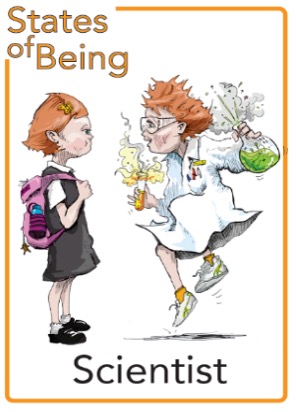Scientist
Being a Scientist at Filton Avenue
Intent
A high-quality science education provides the foundations for understanding the world through observation, investigation and experimentation. Science has changed our lives and is vital to the world’s future prosperity, and all pupils should be taught essential aspects of the knowledge and skills needed to be a scientist. Through building up a body of key foundational knowledge and concepts, pupils can be encouraged to recognise the power of rational explanation and develop a sense of excitement and curiosity about natural phenomena. They should be encouraged to understand how science can be used to explain what is occurring, predict how things will behave, and analyse causes.
The aims of being a Scientist are:
- To develop scientific knowledge and conceptual understanding.
- To develop understanding of science through different types of scientific enquiries that help them to answer questions about the world around them.
- To be equipped with the scientific knowledge required to understand the uses and implications of science, today and for the future.
How do we learn?
Being a Scientist is integrated into our curriculum through an enquiry-led, local learning approach. This approach recognises that the cognitive maturity of learners affects what and how they learn. It encourages learners to be a scientist and develop their disciplinary knowledge as well as their substantive knowledge of scientific concepts.
The children learn through knowledge practice and retrieval and through a range of enquiry approaches covering all the skills needed to become a scientist.
What do we learn?
Our science curriculum is designed to build upon previous learning as the learners mature and become more able to understand a world further and further removed from their immediate surroundings. For example in Year 1, the children will learn about materials suitable for creating a toy, in Year 2 they will be looking into the materials needed to build a school and by Year 5 they will be thinking about what material an explorer will need to provide warmth, shelter and protection in some of the most hostile environments in the world.
Our knowledge organisers have been designed to show this progression to the children with previous knowledge displayed alongside the new knowledge they will learn in their enquiry. We have been careful to make these knowledge organisers as pictorial as possible to aid those learners who have barriers to reading. The knowledge organisers are downloadable for parents (at the bottom of this page) and are labelled by year group and area of study.
It is also important to teach the precise vocabulary needed to understand scientific concepts, especially as many words have a very specific scientific meaning and also a more common use. For example, freezing for a scientist means turning from a liquid to a solid but saying “brrr, I’m freezing” in everyday life just means “I’m cold”.
What is ‘covered’?
Our Curious-city curriculum, adapted to suit our setting’s unique needs uses the National Curriculum 2014 areas as a basic foundation. However Curious-city is much more than that. It is localised, real-life and challenges learners to apply their learning in unique ways without the support of adults to prove what they have learnt. Local companies, charities, organisations, individuals and objects are used as foci to enhance and instill a sense of curiosity, pride and stewardship.
Impact – How is Being a Scientist monitored and assessed?
Teachers use formative and summative assessments to determine knowledge is being understood and address misconceptions immediately. Every lesson we use recall quizzes to aid knowledge retrieval of previous learning and embedding these facts into long term memory. Key knowledge is taught through a “moment of instruction” model and repeated regularly. We use an online quizzing tool to assess children’s knowledge entering and exiting each enquiry block so that teaching can be adapted to cover gaps in the learning and the needs of the individual class.
National Curriculum coverage linked to our enquiries
If you want to be a Scientist at home, try looking at these websites:
- We The Curious (matterport.com) virtual tour
- STEM LEARNING https://www.stem.org.uk/lxefq
- SCIENCE SPARK https://www.science-sparks.com/science-fair-project-ideas/
- NASA https://www.nasa.gov/
Year-1-plants-Knowledge-organiser.pdf
Year-1-materials-knowledge-organiser.pdf
Year-1-seasons-knowledge-organiser.pdf
Year-1-What-am-I-knowledge-organiser.pdf
Year-2-animals-and-humans-knowledge-organiser.pdf
Year-2-Habitats-knowledge-organiser.pdf
Year-2-materials-knowledge-organiser.pdf
Year-2-plants-knowledge-organisers.pdf
Year-3-animals-and-humans-knowledge-organiser.pdf
Year-3-light-knowledge-organiser.pdf
Year-3-Forces-Knowledge-organiser.pdf
Year-3-plants-knowledge-organiser.pdf
Year-3-rocks-knowledge-organiser.pdf
Year-4-animals-and-humans-knowledge-organiser.pdf
Year-4-How-can-we-switch-off-knowledge-organiser.pdf
Year-4-What-are-we-doing-to-save-our-seas-knowledge-organiser.pdf
Year-4-What-is-sound-sound-knowledge-organiser.pdf
Year-4-Where-does-our-water-come-from-scientist-and-geographer.pdf
Year-4-Where-does-our-water-come-from-states-of-matter-knowledge-organiser.pdf
Year-5-How-can-science-help-explorers-materials-knowledge-organiser.pdf
Year-5-What-are-you-doing-to-save-the-planet-habitats-knowledge-organiser.pdf
Year-5-What-do-forces-do-forces-knowledge-organiser.pdf
Year-5-What-does-the-solar-system-look-like-Space-Knowledge-organiser.pdf
Year-6-electricity-knowledge-organiser.pdf
Year-6-evolution-knowledge-organiser.pdf
Year-6-How-are-adaptation-and-evolution-linked-habitats-knowledge-organiser.pdf
Year-6-How-are-adaptation-and-evolution-linked-plantsknowledge-organiser.pdf
Year-6-How-are-lived-saved-animals-and-humans-knowledge-organiser.pdf
Year-6-why-are-shadows-important-knowledge-organiser.pdf




